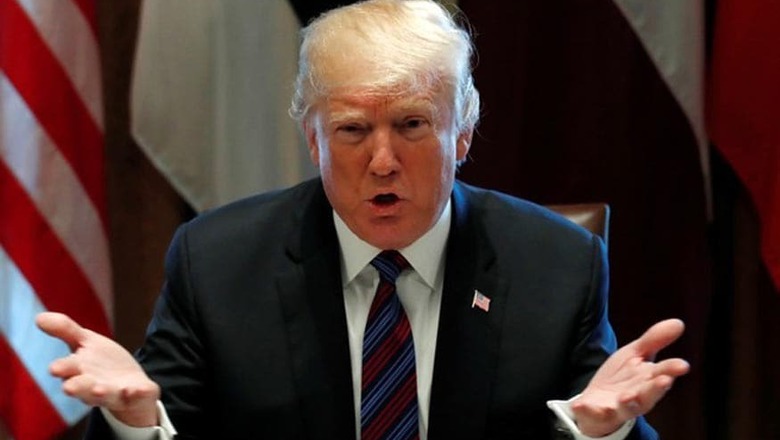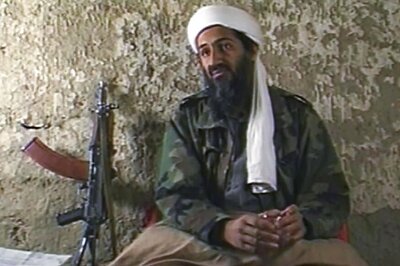
views
US President Donald Trump said on Tuesday he was reimposing economic sanctions on Iran and pulling the United States out of an international agreement aimed at stopping Tehran from obtaining a nuclear bomb.
The decision is likely to raise the risk of conflict in the Middle East, upset America's European allies and disrupt global oil supplies.
"I am announcing today that the United States will withdraw from the Iran nuclear deal," Trump said at the White House. "In a few moments, I will sign a presidential memorandum to begin reinstating U.S. nuclear sanctions on the Iranian regime. We will be instituting the highest level of economic sanctions."
The 2015 deal, worked out by the United States, five other international powers and Iran, eased sanctions on Iran in exchange for Tehran limiting its nuclear program.
Trump says the agreement, the signature foreign policy achievement of Trump's predecessor Barack Obama, does not address Iran's ballistic missile program, its nuclear activities beyond 2025 nor its role in conflicts in Yemen and Syria.
Iran has ruled out renegotiating the agreement and threatened to retaliate, although it has not said exactly how, if Washington pulled out.
Renewing sanctions would make it much harder for Iran to sell its oil abroad or use the international banking system.
The 2015 pact itself does not contain any provisions for leaving, but re-imposition of harsh sanctions on Iran that that were eased under the deal erases the economic benefits promised under the deal and be tantamount to the United States walking away.
It wasn't immediately clear which sanctions would be slapped back on Iran and how quickly. But grace periods of a few months to half a year are expected to be granted so that businesses and governments can wind down operations that would violate re-imposed U.S. sanctions, the individuals said.
Trump spoke with French President Emmanuel Macron and Chinese leader Xi Jinping about his decision Tuesday. Macron vigorously supports the deal and tried to persuade Trump to stay committed to it during a visit to Washington last month.
The British Foreign Secretary traveled to Washington this week to make a last-minute pitch to the U.S. to remain in the deal, according to a senior British diplomat. The diplomat, who spoke on condition of anonymity, said the British objective will remain to uphold and maintain the deal.
Hours before the announcement, European countries met to underline their support for the agreement. Senior officials from Britain, France and Germany met in Brussels with Iran's Deputy Foreign Minister for Political Affairs, Abbas Araghchi.
If the deal collapses, Iran would be free to resume prohibited enrichment activities, while businesses and banks doing business with Iran would have to scramble to extricate themselves or run afoul of the U.S. American officials were dusting off plans for how to sell a pullout to the public and explain its complex financial ramifications, said U.S. officials and others, who weren't authorized to speak ahead of an announcement and requested anonymity.
In Iran, many were deeply concerned about how Trump's decision could affect the already struggling economy. In Tehran, President Hassan Rouhani sought to calm nerves, smiling as he appeared at a petroleum expo. He didn't name Trump directly, but emphasized that Iran continued to seek "engagement with the world." "It is possible that we will face some problems for two or three months, but we will pass through this," Rouhani said.




















Comments
0 comment